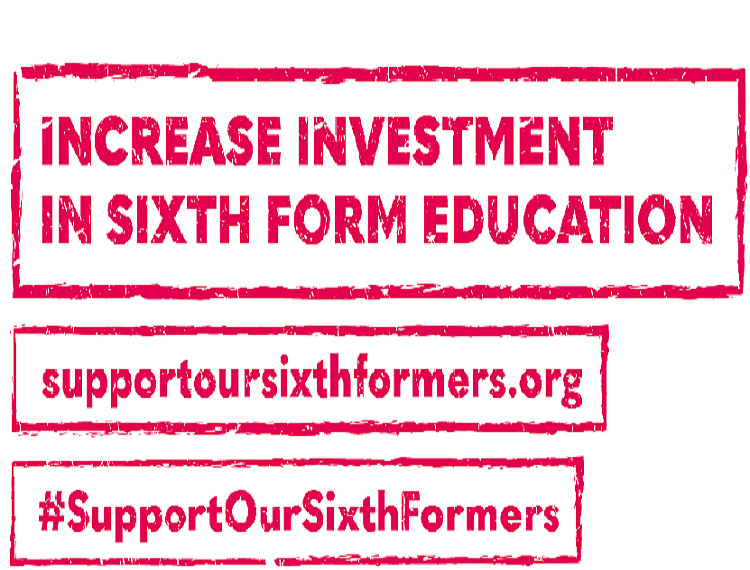School and college leaders have come together to call for an increase in funding for sixth form education ahead of next month’s general election. The Support Our Sixth-formers (SOS) campaign has been launched today to coincide with the publication of the
Sixth Form Colleges Association’s 2017 election manifesto.
The SFCA manifesto reports that funding pressures are turning sixth form education into a part-time experience, with sixth formers in England now receiving just half as much tuition time as sixth formers in other leading economies. A sustained period of underinvestment has led to schools and colleges receiving 21% less funding to educate sixth formers than younger students. The average fee for a single term in an independent school sixth form is now more than state schools and colleges receive to educate a sixth former for an entire year.
The manifesto calls on all political parties to adopt four recommendations aimed at increasing investment in sixth form education. The main recommendation, and the focus of the campaign, is the introduction of an ‘SOS uplift’ in funding of £200 per student (an overall increase of less than 5%) that schools and colleges can use to improve the support offered to sixth formers.
This increased investment would be used to boost students’ employability skills to help them flourish in the workplace and improve careers advice to ensure students make better choices when leaving sixth form education. It would also be used to support the growing number of sixth form students experiencing mental health problems and improve students’ study skills to aid exam performance in the sixth form and beyond. As the funding that schools and colleges now receive covers little more than the cost of delivering three A level or equivalent qualifications, all of these vital support activities have been scaled back.
Other recommendations include a review of sixth form funding to ensure it is linked to the realistic costs of delivering a rounded, high quality, curriculum; a VAT refund scheme for Sixth Form Colleges to bring them in line with school sixth forms; and an improved process for establishing new sixth form provision.
Bill Watkin, Chief Executive of the Sixth Form Colleges Association said:
“We are calling on all political parties to back the Support Our Sixth-formers campaign and adopt the recommendations in our election manifesto. The focus on pre-16 education and introduction of the national funding formula for schools has overshadowed the funding crisis in sixth form education. As the government’s planned investment in post-16 education is focused entirely on technical education it will have no impact on the vast majority of students in Sixth Form Colleges or school sixth forms. Increased investment is now urgently required to ensure that students pursuing A level and other academic qualifications receive the sort of high quality education and support they need to become healthy, happy, resilient and productive citizens.”
Geoff Barton, General Secretary of the Association of School and College Leaders said:
“All political parties must commit to addressing, as a matter of urgency, the severe underfunding of sixth form education. Schools are being hit by rising costs but the situation in post-16 education is even more serious because these pressures come on top of funding cutbacks in the last parliament.”
About the Sixth Form Colleges Association (SFCA): An organisation that represents the 90 state Sixth Form Colleges in England. SFCA also represents a growing number of 16–19 academies, 16–19 schools and 16–19 free schools and is the authoritative voice of sixth form education in England. Copies of the SFCA manifesto can be downloaded from the supportoursixthformers.org website here. A one page summary can be found here.
About the Association of School and College Leaders: Britain’s leading professional body representing over 18,000 school, college and system leaders, across the UK, including primary schools, multi-academy trusts and those working across phases.













Responses